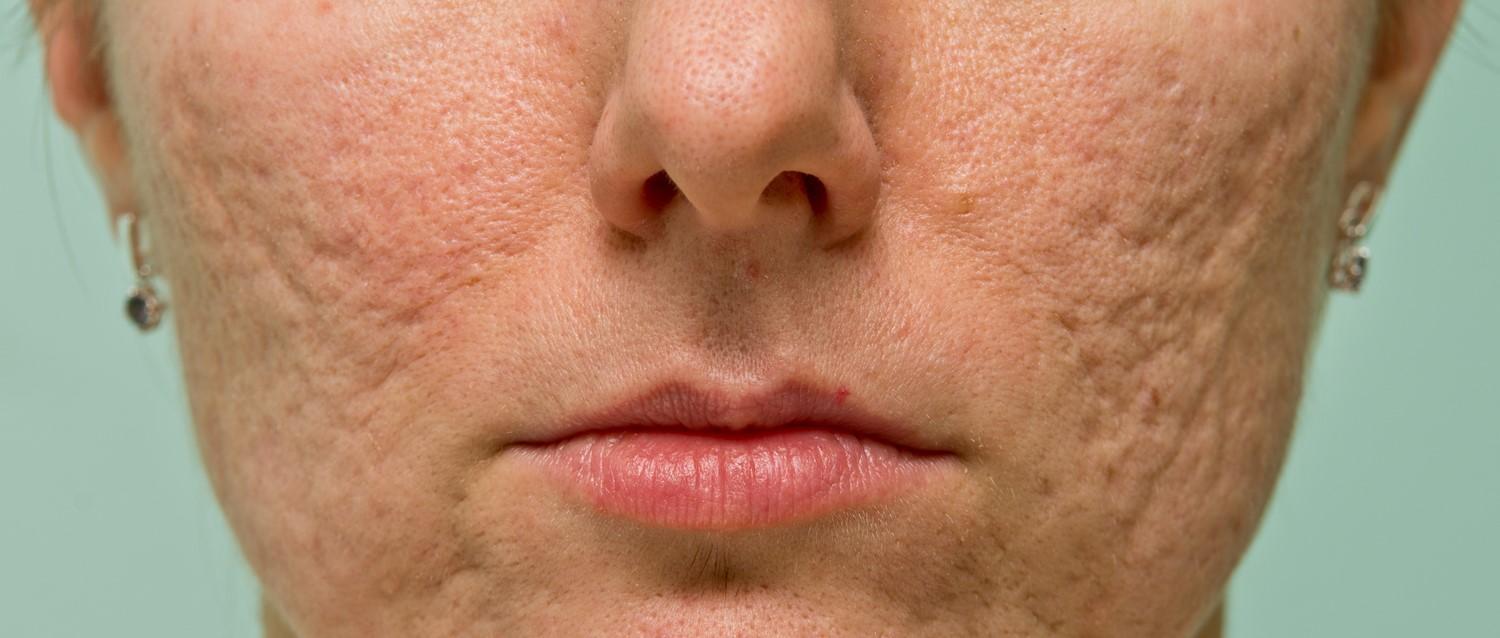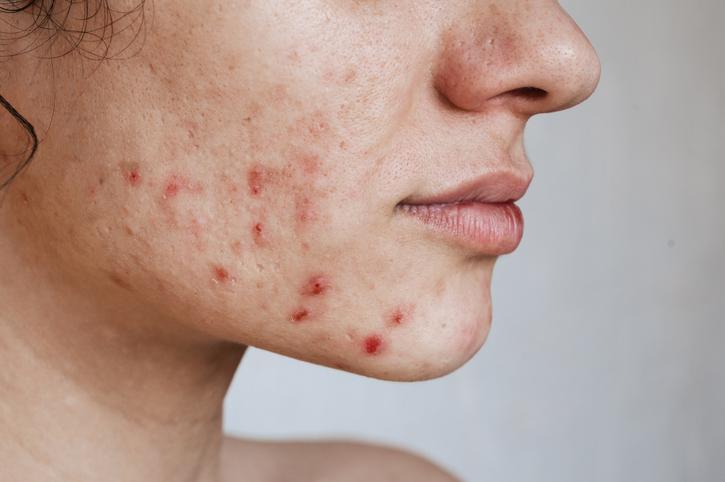
Could your face mask be causing your acne?
Peer reviewed by Dr Sarah Jarvis MBE, FRCGPAuthored by Andrea DowneyOriginally published 8 Nov 2020
- DescargarDescargar
- Compartir
Have you noticed you're breaking out more often than usual and in areas where your face mask sits? You're not alone. 'Maskne' is one of the unexpected consequences of the coronavirus pandemic. So why do we get it, and how can we get rid of it?
En este artículo:
Many people are experiencing redness, spots and a worsening of acne symptoms due to wearing a face mask or covering - a condition dubbed 'maskne'.
While you're wearing your face mask to do your bit to protect others from the risk of COVID-19, breakouts can still be painful and distressing.
Dr Thivi Maruthappu, consultant dermatologist and spokesperson for the British Skin Foundation explains 'maskne' and how you can treat it.
Seguir leyendo
Spot of bother
Face masks can actually cause a variety of skin problems, the most common being mask acne, Dr Maruthappu says.
"Masks create a warm and humid environment underneath them which traps moisture and sebum," she explains.
"This can aggravate pre-existing acne or cause new breakouts by clogging pores. These pores become inflamed leading to the classical red tender acne lesion. Maskne typically occurs around the mouth and nose area but can also affect the jawline."
The cause of maskne is no different to the cause of any other acne. Acne is caused by excess oil on the skin combined with a blockage in the pores.
Excess oil production combined with blockage of hair follicles/sebaceous glands, or oil glands, and overgrowth of the bacterium propionibacterium acne causes spots, Dr Maruthappu explains.
"It can be exacerbated by stress, hormonal factors and medications."
Masks can also cause irritation in tight areas, such as across the nose, dry skin and redness.
"This can be worse if you have underlying skin conditions such as eczema or rosacea. In such cases it is important to use a rich barrier moisturiser before wearing your mask," Dr Maruthappu adds.
Selección de pacientes para Acné

Salud de la piel, las uñas y el cabello
¿Ayuda Bio-Oil a las cicatrices del acné?
Bio-Oil es un aceite cosmético que muchos afirman que puede reducir la aparición de cicatrices de acné. Bio-Oil es tanto el nombre del aceite como el del fabricante del producto. Es un aceite cosmético que afirma reducir la apariencia de cicatrices y estrías, pero ¿hasta qué punto son ciertas estas afirmaciones?
por Emily Jane Bashforth

Salud de la piel, las uñas y el cabello
Acné
El acné (también llamado "espinillas", granos o espinillas) es una afección frecuente, sobre todo en adolescentes. También puede afectar ocasionalmente a personas de mediana edad y a bebés. Suele causar mucha preocupación y angustia, pero suele desaparecer, o al menos mejorar mucho, con el tratamiento adecuado. El tratamiento puede tardar aproximadamente un mes en hacer efecto y puede ser necesario continuarlo durante un tiempo, incluso después de que las manchas hayan desaparecido.
por el Dr. Colin Tidy, MRCGP
Banish breakouts
Now you know what causes maskne, how can you banish those breakouts?
Luckily, there are easy steps you can take to help prevent spots and treat existing ones.
Looking after your skin
"If you are developing acne due to face masks, it's important to cleanse your skin carefully twice a day and, in particular, after you take your mask off when you get home," Dr Maruthappu says.
"Use non-comedogenic products which should reduce the likelihood of pores getting blocked. In addition, avoid wearing makeup or oil-containing products under your mask as this can exacerbate acne."
Face washes, make-up, moisturisers and other cosmetic products should say if they are non-comedogenic on their packaging. Non-comedogenic essentially means the product is not likely to cause pore blockages, or comedones to use the technical term.
But it's also important not to over cleanse as this can cause dry skin. The skin's natural reaction to drying out is to create more oil which, you guessed it, can make acne worse.
Over-the-counter treatments
There is also a range of over-the-counter acne treatments you can find in your local pharmacy to help treat spots, Dr Maruthappu says.
"Ingredients to look for in acne-fighting products are salicylic acid, benzyl peroxide and niacinamide, which can be used morning and night," she explains.
"Avoid oil-containing ingredients which can frequently exacerbate acne."
Seguir leyendo
Switch it up
You may find switching to a mask that is more breathable helpful in managing breakouts.
Materials that create excess humidity and warmth underneath them are likely to make spots worse.
"Masks made of natural fibres are often better but need to be washed on a regular basis to remove built-up oil, dead skin cells and bacteria," suggests Dr Maruthappu.
Unfortunately, not wearing a mask is not an option.
In England it is compulsory to wear a face covering or mask when on public transport; in shops and supermarkets; in pubs, bars and restaurants except when seated; in theatres, museums and other entertainment venues; in banks and post offices; and in places of worship. The rules vary in Scotland, Wales and Northern Ireland.
Fines of up to £200 have been introduced for people not wearing a mask where expected to, which doubles upon the next offence.
There are exceptions to the rule including children under 11; people who cannot wear a mask due to disability or mental health reasons; people with asthma; if you are speaking to someone who relies on lip reading; and in situations where a mask may cause distress.
Historia del artículo
La información de esta página ha sido revisada por médicos cualificados.
8 Nov 2020 | Originally published
Autores:
Andrea Downey
Revisado por expertos
Dra. Sarah Jarvis MBE, FRCGP

Pregunte, comparta, conecte.
Explore debates, formule preguntas y comparta experiencias sobre cientos de temas de salud.

¿Se encuentra mal?
Evalúe sus síntomas en línea de forma gratuita